Daily Current Affairs and GK | 12 November 2020

Main Headlines:
- 1. Denmark has reduced the number of mink in the country.
- 2. World Inequality Lab’s report says that inequality continuously rising in India.
- 3. Public Service Broadcasting Day: 12 November.
- 4. PM Modi co-chaired 17th ASEAN-India Summit with Vietnamese counterpart.
- 5. PM will inaugurate Ayurveda institutions at Jamnagar and Jaipur on Ayurveda Day 2020.
- 6. Union cabinet approved PLI scheme worth 1.46 lakh crore for enhancing India’s manufacturing capabilities.
- 7. Birth Anniversary of Salim Ali celebrated on 12 November.
- 8. IFSCA approved International Financial Services Centres Authority (Banking) Regulations 2020.
- 9. Food Processing Industries Ministry providing 50 % air transportation subsidy under Operation Greens Scheme TOP to TOTAL.
- 10. Bahrain’s PM Prince Khalifa bin Salman Al Khalifa passes away.
- 11. Sarhad Vistar Vikasotsav 2020 inaugurated by Home Minister Amit Shah.
- 12. Finance Minister gives confiscated coins and antiquities of ancient and medieval period to Culture Minister Prahlad Singh Patel.
Happy February get 35% Off
Use Coupon code FEB26
1. Denmark has reduced the number of mink in the country.
- Recently, Denmark has recorded over 200 human cases infected with SARS-CoV-2 variants that are related to farmed minks.
- Denmark is the world’s largest mink producer.
- Minks:
- They are dark-coloured carnivorous mammals from the Mustelidae family, which also includes weasels, otters and ferrets.
- The American mink and the European mink are two extant species referred to as “mink”.
- Due to an ongoing reduction in numbers of European mink, it is listed by the IUCN as Critically Endangered.
- More than 50 million minks a year are bred for their fur, mainly in China, Denmark, Poland and the Netherlands. Mink oil is used in some medical products and cosmetics, as well as to treat, preserve and waterproof leather.
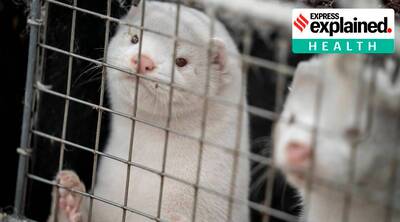
(Source: Indian Express)
2. World Inequality Lab’s report says that inequality continuously rising in India.
- World Inequality Lab’s report, a part of the global inequality data 2020 update released on the World Inequality Database, has said that inequality is continuously rising in India.
- The report says that inequality levels in communist countries such as China and Vietnam are less than in non-communist countries such as India and Thailand.
- However, inequality in communist countries such as China and Vietnam is still higher than in Western Europe as per the report. Western Europe is the least unequal region globally.
- As per the report, inequality in communist countries such as China and Vietnam is higher than in post-communist Eastern Europe and lesser than in post-communist Russia.
- The report says that in early 1990s and 2000s, inequality started to increase in both India and China. It became stabilized in China. But, it continued to increase in India.
- The percentage of people having 8% of national income in China increased from 1% in 1990 to 14% in 2019. But the percentage increased from 11% in 1990 to 21% in 2019 in India.
- World Inequality Database provides data on the distribution of income and wealth worldwide.
- World Inequality Lab is at the Paris School of Economics, a French research institute for economics. It has released World Inequality Report 2018 in December 2017. It is an open-source for global inequality data.

(Source: wid.world)
3. Public Service Broadcasting Day: 12 November.
- Public Service Broadcasting Day 2020 is being celebrated on 12 November.
- Public Service Broadcasting Day is celebrated every year to remember Mahatma Gandhi’s first and only visit to All India Radio (AIR) studio at Delhi.
- In 1947, Mahatma Gandhi visited AIR studio at Delhi and addressed people, who were displaced and temporarily settled at Kurukshetra in Haryana after partition.
- On Public Service Broadcasting Day, special programme is organized in premises of AIR, New Delhi.
- 12 November was announced as Public Service Broadcasting Day (Jan Prasaran Diwas) in 2000.
- Suhas Borker gave the idea of Public Service Broadcasting Day (Jan Prasaran Diwas). He is the Convenor of Jan Prasar.
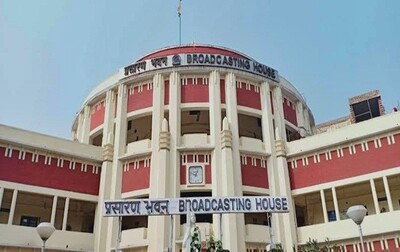
(Source: News on AIR)
4. PM Modi co-chaired 17th ASEAN-India Summit with Vietnamese counterpart.
- PM has addressed the 17th ASEAN-India Summit with his Vietnamese counterpart in a virtual mode.
- All ASEAN leaders have participated in this event.
- In the summit, many issues were discussed, including the progress made in the field of maritime cooperation, trade and commerce, the status of the ASEAN-India Strategic Partnership, etc.
- They also discussed how to strengthen ASEAN-India engagement and the adoption of ASEAN-India Plan of Action (2021-2025).
- ASEAN –India summit is important for India’s Act East Policy.
- The 16th ASEAN-India Summit was held in Bangkok in November 2019.
- Association of Southeast Asian Countries (ASEAN):
- Established on 8 August 1967, ASEAN includes 10 countries in Southeast Asia - Indonesia, Thailand, Malaysia, Singapore, Philippines, Vietnam, Brunei, Myanmar (Burma), Cambodia, Laos.
- ASEAN is India’s fourth-largest trading partner and is headquartered in Jakarta, Indonesia.
- ASEAN-India relations were upgraded into ASEAN-India Strategic Partnership in 2012.
- ASEAN-India Plan of Action, 2016-2020, was adopted in 2015 by the ASEAN-India Foreign Ministers Meeting.
5. PM will inaugurate Ayurveda institutions at Jamnagar and Jaipur on Ayurveda Day 2020.
- On the occasion of 5th Ayurveda Day, Prime Minister will inaugurate the National Institute of Teaching and Research in Ayurveda (ITRA) at Jamnagar and the National Institute of Ayurveda (NIA) at Jaipur.
- In recent years many steps were taken for the modernization of AYUSH education. The establishment of these institutions will help in utilizing the untapped potential of AYUSH systems of healthcare.
- These institutions will play a key role in improving the standards of Ayurveda education and framing various courses as per national and international demand.
- A webinar on the theme of ‘Ayurveda for Covid-19 pandemic’ will be organised on ‘Ayurveda Day.’
- Ayurveda Day:
- It is celebrated every year on 13th November from 2016 on the occasion of Dhanwantari Jayanti. It was started by the Union Ministry of AYUSH.
- This year’s Ayurveda Day will focus on the potential role of Ayurveda in the management of COVID-19.
- Its main aim is to create awareness about the use of Ayurveda and increase the role of Ayurveda in the National Health Policy and National Health programmes.
6. Union cabinet approved PLI scheme worth 1.46 lakh crore for enhancing India’s manufacturing capabilities.
- Production-Linked Incentive (PLI) scheme has been approved by the Union Cabinet for Enhancing India’s Manufacturing Capabilities and Exports in 10 key sectors.
- The PLI scheme has identified 10 key sectors in which it will make Indian manufacturers at par with global competition, attract investment, support cutting-edge technology, enhance exports and will make India an integral part of the global supply chain.
- It will stimulate the Vision of ‘AatmaNirbhar Bharat’ and create new job opportunities in various sectors.
- Under this scheme, Automobiles and Auto Components sector have received the maximum incentive.
- Key points about the sectors identified:
- The Indian pharmaceutical industry contributes 3.5% of the total drugs and medicines exported globally. It is the third-largest in the world by volume and 14th largest in terms of value. PLI scheme will incentivize the global and domestic companies in the value production.
- India is the world’s second-largest steel producer in the world. It is a net exporter of finished steel. PLI scheme will help in increasing manufacturing capabilities of the steel industry.
- PLI scheme will help in the domestic manufacturing of white goods, Solar PV panels, electronic products, etc.
|
Sectors |
Implementing Ministry/Department |
|
Advance Chemistry Cell (ACC) Battery |
NITI Aayog and Department of Heavy Industries |
|
Electronic/Technology Products |
Ministry of Electronics and Information Technology |
|
Automobiles & Auto Components |
Department of Heavy Industries |
|
Pharmaceuticals drugs |
Department of Pharmaceuticals |
|
Telecom & Networking Products |
Department of Telecom |
|
Textile Products: MMF segment and technical textiles |
Ministry of Textiles |
|
Food Products |
Ministry of Food Processing Industries |
|
High Efficiency Solar PV Modules |
Ministry of New and Renewable Energy |
|
White Goods (ACs & LED) |
Department for Promotion of Industry and Internal Trade |
|
Speciality Steel |
Ministry of Steel |
7. Birth Anniversary of Salim Ali celebrated on 12 November.
- Birth Anniversary of Salim Ali, ‘Birdman of India,’ has been celebrated on 12 November. He is a well-known ornithologist of India.
- He is known as ‘Birdman of India’ due to his love for birds and nature.
- He was the first Indian to conduct systematic bird surveys across India and has written many books on ornithology.
- He wrote The Book of Indian Birds, Pictorial Guide to the Birds of the Indian Subcontinent and Handbook of the Birds of India and Pakistan.
- He received Padma Bhushan in the category of Civilian Award in Science and Engineering in 1958 and was honoured with Padma Vibushan in 1976.
- He had also been awarded the Gold Medal of the British Ornithologists’ Union in 1967. He was the first non- British citizen to receive this award.
- He is famous for his role in establishing Bharatpur Bird Sanctuary and prevented the destruction of the Silent Valley National Park.

(Source: India Today)
8. IFSCA approved International Financial Services Centres Authority (Banking) Regulations 2020.
- International Financial Services Centres Authority (IFSCA) has approved draft banking regulations for banking operations at IFSCs.
- It will lay down the rules for the banking operations permissible at the IFSC.
- The draft regulations will enable the authority to decide on other permissible activities such as credit enhancement, credit insurance, and sale, purchase of portfolios, etc.
- It will allow opening of a foreign currency account by the persons residing outside India.
- It will also create a framework to regulate the business conducted by the IFSC banking units in INR with Indian residents and persons residing outside India.
- International Financial Services Centres Authority:
- It was established to regulate all financial services in International Financial Services Centres (IFSCs).
- It is headquartered at Gandhinagar in Gujarat.
- India’s first International Financial Service Centre (IFSC) was established at the Gujarat International Financial Tec (GIFT) City, Ahmedabad.
- IFSC caters the customers outside the jurisdiction of the domestic economy.
9. Food Processing Industries Ministry providing 50 % air transportation subsidy under Operation Greens Scheme TOP to TOTAL.
- Food Processing Industries Ministry is providing 50 % air transportation subsidy under Operation Greens Scheme TOP to TOTAL.
- The 50% subsidy is being provided for air transportation for 41 notified fruits and vegetables from North-Eastern and Himalayan states to anywhere in India.
- Operation Greens Scheme TOP to TOTAL refers to Operation Greens Scheme which was extended by the Ministry from Tomato, Onion and Potato (TOP) to all fruits & vegetables (TOTAL) as part of Aatmanirbhar Bharat Abhiyan.
- Under the scheme, airlines will charge supplier, consignee or agent only 50% of freight charges. The Ministry will pay 50% of the transportation cost to airlines.
- All the airports in Arunachal Pradesh, Assam, Manipur, Meghalaya, Mizoram, Nagaland, Sikkim, and Tripura from North-East are eligible for transportation subsidy.
- Among the hilly states, airports in Himachal Pradesh, Uttarakhand and Union Territories of Jammu and Kashmir and Ladakh are eligible.
- Government has extended transportation subsidy under Operation Greens Scheme for Kisan Rail Scheme from 12 October 2020.
- Railways are implementing the subsidy by charging only 50% of freight charges on the notified fruits and vegetables.
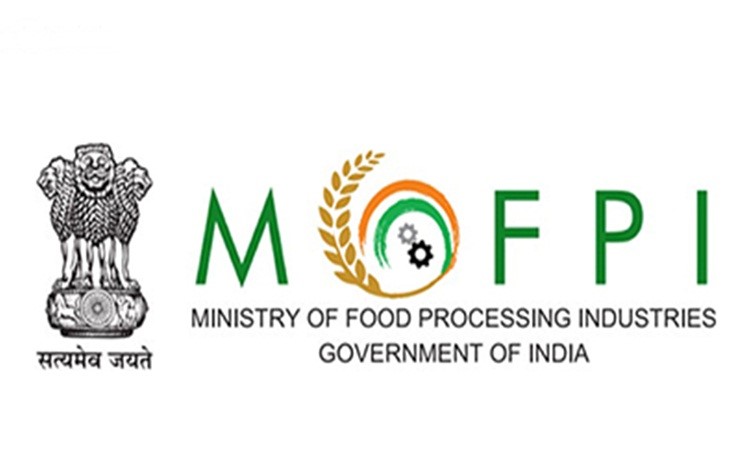
(Source: News on AIR)
10. Bahrain’s PM Prince Khalifa bin Salman Al Khalifa passes away.
- Prime Minister of Bahrain Prince Khalifa bin Salman Al Khalifa passed away on 11 November.
- Prince Khalifa was the world’s longest-serving Prime Minister. He was also Bahrain’s longest serving PM.
- He assumed office after Bahrain’s independence in 1971. A week-long official mourning has been announced in Bahrain.
- Prince Khalifa bin Salman Al Khalifa will be succeeded by Bahrain’s Crown Prince Salman bin Hamad bin Isa Al Khalifa.
- Bahrain:
- It is a country in the Persian Gulf. It is Asia’s third smallest nation.
- Capital: Manama
- Currency: Bahraini Dinar
- Prime Minister: Khalifa Bin Salman Al Khalifa
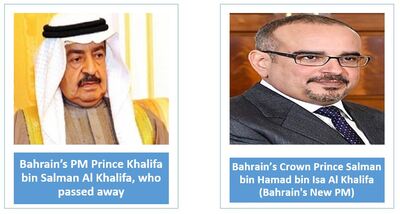
11. Sarhad Vistar Vikasotsav 2020 inaugurated by Home Minister Amit Shah.
- Sarhad Vistar Vikasotsav 2020 was inaugurated by Home Minister Amit Shah on 12 November at Dhordo village in Gujarat.
- Sarhad Vistar Vikasotsav 2020 is the first of its kind event. It is being organized under the Border Area Development Programme (BADP).
- Panchayati Raj Institution (PRI) functionaries were given Home Ministers’ Special Operation Medals at the event.
- The aim of the Sarhad Vistar Vikasotsav is to deal with the health, education and road connectivity related problems in remote and border villages.
- More than 1500 Sanpanch and Gram Panchayat members from 158 border villages from three districts of Gujarat are invited to participate in the event. The districts are Kutch, Banaskantha and Patan districts.
- Dhordo village is situated in the forward border area in the Kutch district of Gujarat.
12. Finance Minister gives confiscated coins and antiquities of ancient and medieval period to Culture Minister Prahlad Singh Patel.
- Finance Minister has given confiscated coins and antiquities of ancient and medieval period to Culture Minister Prahlad Singh Patel.
- Finance Minister gave 40,282 confiscated coins and more than 18 antiques. The coins belonged to Sultanate and Mughal era from 1206 to 1720 AD.
- The coins are from princely states of Kushana, Yaudheya, Guptas, Pratihar, Cholas, Rajputs, Mughals, Marathas, Kashmir.
- British India, French and certain Australian coins from 1800-1900 AD were also given.
- Antiques worn by the person having authority by Ruler to execute the Royal orders and one silver Kamar band worn by affluent family women were also handed by Finance Minister to Culture Minister.
- Coins in Indian History:
- Punch-marked coins are known as the first issued coins in ancient India. They were issued between between 7th-6th century BC and 1st century AD and mostly made of silver and copper.
- Around 2nd century BCE, Indo-Greeks issued first coins with the name and images of rulers.
- Around the 1st century CE (AD), Kushanas issued the first gold coins. Yaudheyas of Punjab and Haryana also issued coins around the first century CE.
- Gupta rulers (4th-6th centuries AD) continued with the gold coins. Gold coins from the Post-Gupta period (6th-12th centuries AD) have not been found.
- Iltutmish started copper tanka and silver jittals. Khilji rulers issued coins with grand titles.
- During the time of Muhammad bin Tughlak, gold coins were issued in large numbers. Coins were of copper and billon during Lodis time.
- Mughals consolidated the system of coins in India. Tri-metalism was the characteristics of Mughal coins.
- Sher Shah Suri issued a silver coin. It was called Rupiya. Mohur (gold coins) and Dam (copper coins) were also issued with silver Rupiya.





 11 November 2020 Current Affairs
11 November 2020 Current Affairs 






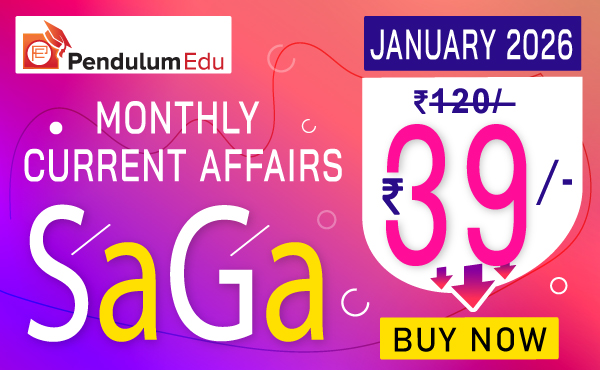

Comments